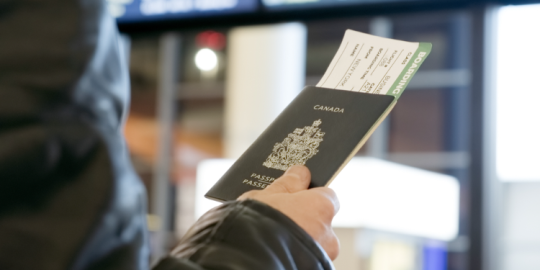Sorting is essential to prepare for your return home
Before you decide whether to repatriate or sell your belongings, you need to know exactly what you have. You might underestimated the volume of goods accumulated during your stay — souvenirs from your early expat days, trinkets, clothing, furniture, dishware, etc. Some purchases were impulsive and are now hard to justify. Your belongings won't fit in your suitcases anymore. So it's time to sort.
Just as you sorted your belongings when preparing for your move to your host country, you will have to repeat all the steps all over again to organize your return. Start your inventory well in advance to allow time for a second sorting. The first round may let some items slip through due to emotional attachment. The second sorting should be more stringent.
Begin by making an inventory of your belongings: furniture, bulky items, high-tech equipment, clothing, accessories, dishware... Sort your belongings based on the following criteria:
- Do you wear/use them? How often?
- Do these items have sentimental value? Why?
Initially, set aside all items with sentimental value. You'll revisit these during your second sort. Gather all the clothes and items you no longer wear or use; sort between those in good condition and others. Similarly, list everything you genuinely use. Be as uncompromising as possible to avoid multiple sortings.
Should you sell your belongings or repatriate them?
Firstly, deal with items of sentimental value (hopefully, they do not make up the bulk of your belongings). Can all these fit in your suitcases? If not, can you afford their shipment (by boat, plane...)? Will you need to hire an international mover? Can you handle the cost?
We often tend to overestimate the sentimental value of objects received or purchased abroad. Even a bus ticket or an old pair of sneakers can be cherished like the most precious jewelry. Try to distance yourself from your emotional attachment to their real utility. Do you really need to fill your suitcases with a rice cooker or a 100% local pan set? Keep this rule in mind: only repatriate the essentials. The rest can be sold or given away.
How to sell or donate your belongings
Do you feel generous, or are you looking to pad your wallet before leaving? It's assumed, of course, that you won't spend this money on new purchases.
You can certainly do both: donate some of your items and sell others. Start by reaching out to your contacts. Maybe your friends need that rice cooker or your pan set. Consider all the items you can't take with you, such as leftover detergents or food. By "leftovers," we mean still usable remnants, like a leftover kilo of sugar or half a bag of rice. Why throw away and waste when you can give it away?
On the social media, you'll find many expats who are also leaving and selling or donating their furniture. Consider charities in your host city, as well. Want to test your sales skills? Register to be a one-day seller at a market. Some cities organize special "second-hand days." Try also selling your items in shops. Second-hand has become trendy. But be sure: be paid in cash, not in vouchers.
Do you need an international mover to repatriate your belongings?
If it's just about repatriating small items, there's no need to hire international movers. Everything will most likely fit in your suitcases. For a slight surplus, consider shipping by sea. Make sure to carefully select which belongings you'll ship home. Pack your boxes properly and avoid anything fragile. Fill out the inventory form accurately (quantity, value, etc.). Be wary of potential customs fees. If your belongings are too bulky, consider using an international mover. Beware of some online agencies that, under the pretext of offering cheaper rates, encourage you to calculate the volume of goods to be repatriated yourself. It's better to entrust this task to a professional by contacting a company with an office in your expatriation country.
















